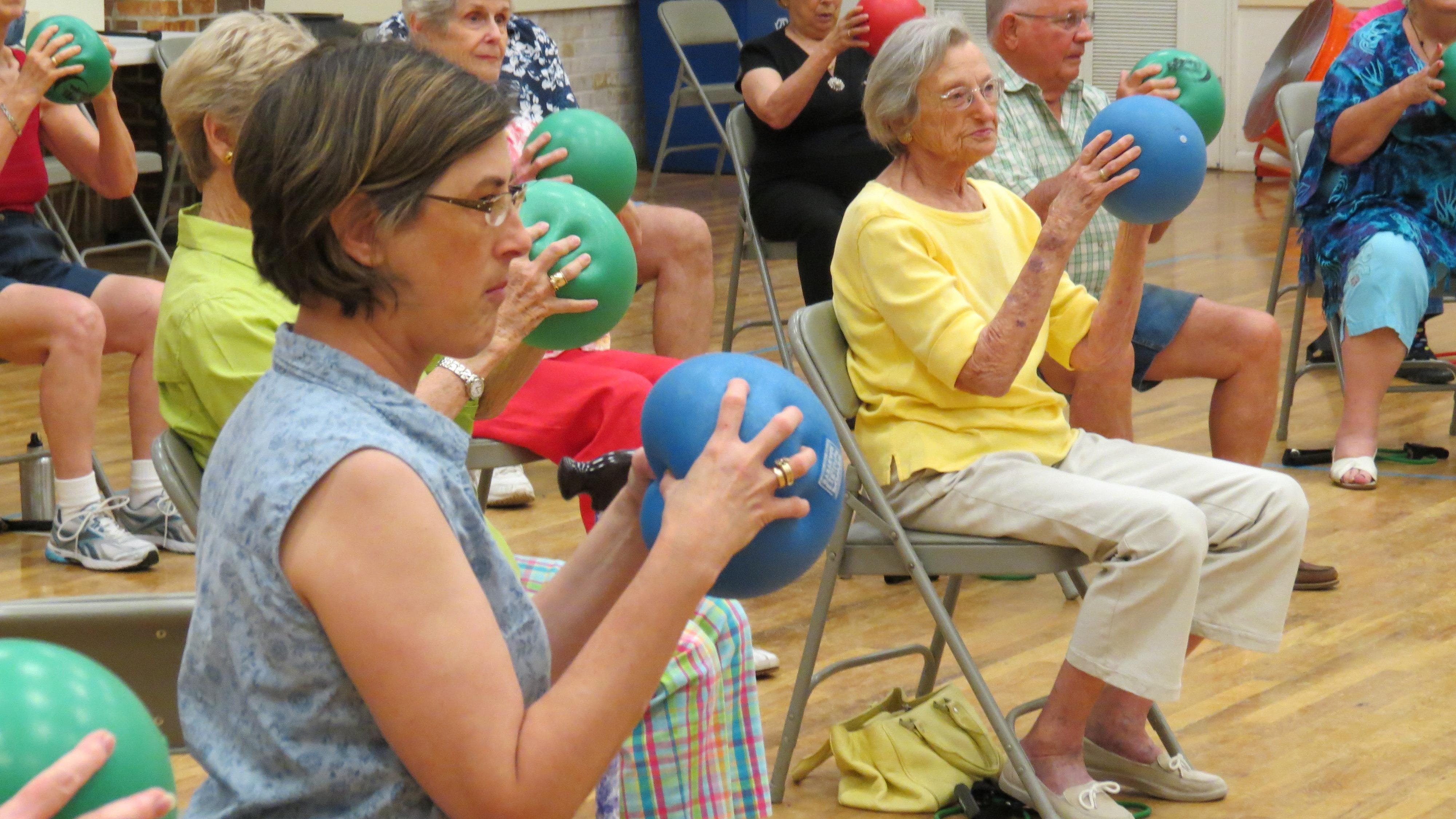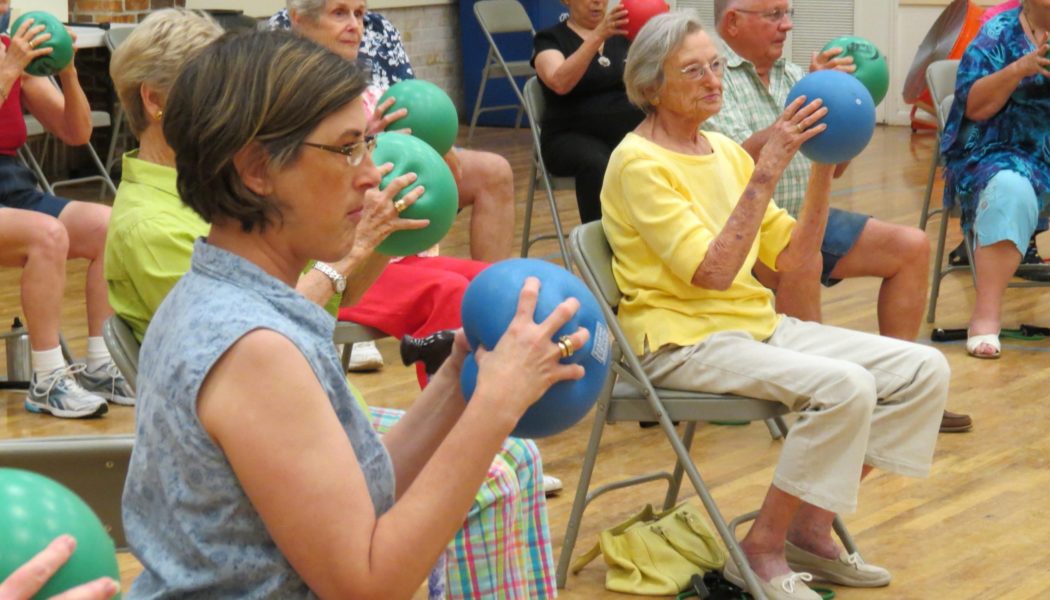
The percentage of people with Alzheimer’s dementia increases dramatically with age. Five percent of people age 65 to 74, 13.1% of people aged 75 to 84, and 33.3% of people age 85 or older have Alzheimer’s dementia (March 14, 2023)
Florida has the second highest number of people with Alzheimer’s in the nation — an estimated 12.5% of Floridians 65 and older (579,900 people) with the disease, per a study published in the journal Alzheimer’s & Dementia (July 31, 2023).
Alzheimer’s and Brain Awareness Month is a time to share facts about Alzheimer’s disease and other dementias that affect the brain.
Today’s column provides an overview of cognitive health and older adults with information provided by the National Institute on Aging. An upcoming column will provide more detailed information on dementia.
Links to additional reference and resource information is provided at the end of the column.
Cognitive health — the ability to clearly think, learn, and remember — is an important component of performing everyday activities. Cognitive health is just one aspect of overall brain health.
What is brain health?
Brain health refers to how well a person’s brain functions across several areas. Aspects of brain health include:
- Cognitive health — how well you think, learn, and remember
- Motor function — how well you make and control movements, including balance
- Emotional function — how well you interpret and respond to emotions (both pleasant and unpleasant)
- Tactile function — how well you feel and respond to sensations of touch — including pressure, pain, and temperature
Brain health can be affected by age-related changes in the brain, injuries such as stroke or traumatic brain injury, mood disorders such as depression, substance use disorder or addiction, and diseases such as Alzheimer’s disease. While some factors affecting brain health cannot be changed, there are many lifestyle changes that might make a difference.
A growing body of scientific research suggests that the following steps are linked to cognitive health. Small changes may really add up: Making these part of your routine could help you function better. These include the following areas:
• Take care of your physical health• Manage high blood pressure• Eat healthy food• Be physically active• Keep your mind active• Stay connected with social activities• Manage stress• Reduce risks to cognitive health
A combination of these healthy lifestyles has the potential to positively impact the risk for Alzheimer’s disease.
Take care of your physical health
• Get recommended health screenings.• Manage chronic health problems like diabetes, high blood pressure, depression, and high cholesterol.• Consult with your health care provider about the medicine you take and possible side effects on memory, sleep, and brain function.• Reduce risk for brain injuries due to falls and other accidents.• Limit use of alcohol (some medicines can be dangerous when mixed with alcohol).• Quit smoking, if you currently smoke. Also avoid other nicotine products such as chewing tobacco.• Get enough sleep, generally seven to eight hours each night.
Manage high blood pressure
Preventing or controlling high blood pressure not only helps your heart, but may help your brain too. Decades of observational studies have shown that having high blood pressure in midlife — the 40s to early 60s — increases the risk of cognitive decline later in life.
In addition, the SPRIN-MIND study, a nationwide clinical trial, showed that intensive lowering of blood pressure (even below the previous standard target of 140 for systolic blood pressure) lowers the risk for mild cognitive impairment, which is a risk factor for dementia.
Eat healthy foods
A healthy diet can help reduce the risk of many chronic diseases such as heart disease or diabetes. It may also help keep your brain healthy.
In general, a healthy diet consists of fruits and vegetables; whole grains; lean meats, fish, and poultry; and low-fat or nonfat dairy products. You should also limit solid fats, sugar, and salt. Be sure to control portion sizes and drink enough water and other fluids
Researchers have developed and are testing another diet, called MIND, a combination of the Mediterranean and DASH (Dietary Approaches to Stop Hypertension) diets. According to observational studies of more than 900 dementia-free older adults, closely following the MIND diet was associated with a reduced risk of Alzheimer’s and a slower rate of cognitive decline.
Check out the following link for more on diet and Alzheimer’s disease at What Do We Know About Diet and Prevention of Alzheimer’s Disease? | National Institute on Aging (nih.gov)
Be physically active
Being physically active — through regular exercise, household chores, or other activities — has many benefits. It can help you:
- Keep and improve your strength
- Have more energy
- Improve your balance
- Prevent or delay heart disease, diabetes, and other concerns
- Perk up your mood and reduce depression
Federal guidelines recommend that all adults get at least 150 minutes (2.5 hours) of physical activity each week. Walking is a good start. You can also join programs that teach you to move safely and prevent falls, which can lead to brain and other injuries. Check with your health care provider if you haven’t been active and want to start a vigorous exercise program.
Keep your mind active
Being intellectually engaged may benefit the brain. People who engage in personally meaningful activities, such as volunteering or hobbies say they feel happier and healthier. Learning new skills may improve your thinking ability, too.
For more information, see nia.nih.gov.
Stay connected with social activities
Connecting with other people through social activities and community programs can keep your brain active and help you feel less isolated and more engaged with the world around you. Participating in social activities may lower the risk for some health problems and improve well-being.
Check out the Tallahassee Senior Center website for a wealth of information at: talgov.com.
Manage stress
Stress is a natural part of life. Short-term stress can even focus our thoughts and motivate us to take action.
However, over time, chronic stress can change the brain, affect memory, and increase the risk for Alzheimer’s and related dementias.
To help manage stress and build the ability to bounce back from stressful situations, there are many things you can do:• Exercise regularly• Write in a journal• Try relaxation techniques (such as mindfulness)• Stay positive: Release grudges or things beyond your control, practice gratitude, or pause to enjoy the simple things, like the comfort of a cup of tea or the beauty of a sunrise.
Reduce risks to cognitive health
Genetic factors are passed down (inherited) from a parent to child and cannot be controlled. But many environmental and lifestyle factors can be changed or managed to reduce your risk. These factors include:
• Some physical and mental health problems, such as high blood pressure or depression
• Brain injuries, such as those due to falls or accidents• Some medicines, or improper use of medicines• Lack of physical activity• Poor diet• Smoking• Drinking too much alcohol• Sleep problem• Social isolation and loneliness
By taking steps now to reduce your risks for cognitive decline, you’ll help to maintain your cognitive health for the future.
References and additional resources
The National Institute on Aging (NIA) has many resources available on Alzheimer’s and dementia at nia.nih.gov.
Check out the following resource for the Alzheimer’s Association on 10 early signs of Alzheimer’s and Dementia: alz.org.
A local resource, The Alzheimer’s Project provides comfort, support, and assistance to persons with memory disorders and their caregivers across the Big Bend area. Check out information on this group at: alzheimersproject.org.
Mark A. Mahoney, Ph.D. has been a Registered Dietitian/Nutritionist for over 35 years and completed graduate studies in Nutrition & Public Health at Columbia University. He can be reached at marqos69@hotmail.com.









